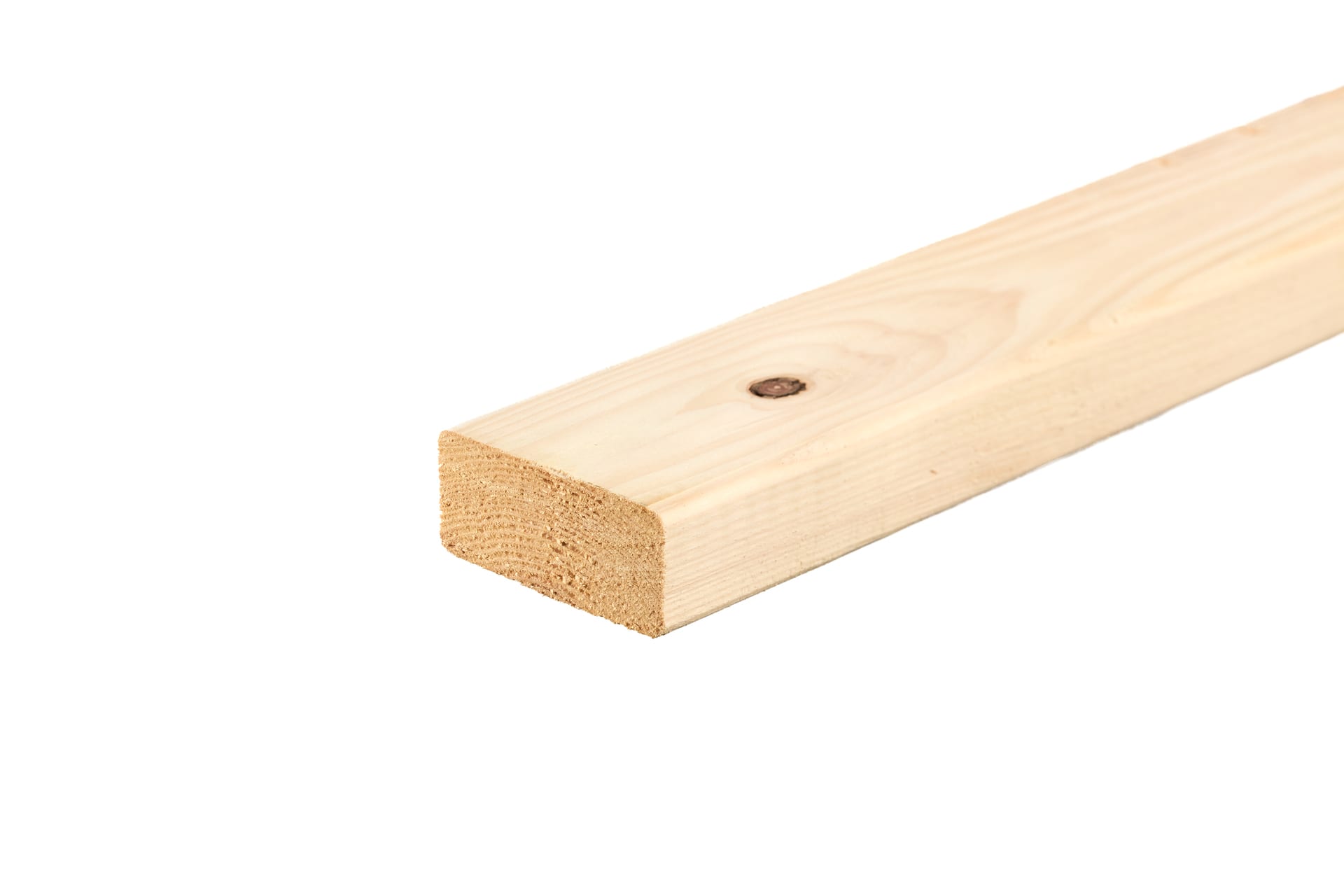4x2 CLS Timber
(6 Products)4 × 2 CLS is a softwood stud that begins as a nominal four-inch by two-inch section and finishes, after planing, at roughly 38mm × 89mm with rounded edges. Usually graded C16, it’s the standard size for internal stud walls, joist trimming, and roof carcassing.
What Is 4x2 CLS Timber?
4 × 2 CLS is simply Canadian-standard softwood that starts out at a nominal four inches by two inches before it’s planed smooth on all four faces.
After machining, the board finishes at roughly 38mm × 89mm with slightly rounded corners. It’s one of the most common stud sizes on UK sites because:
- It lines up neatly with 400mm and 600mm stud centres.
- It’s light enough to handle easily yet strong enough for typical internal walls, roof carcassing and joist trimming.
- The planed faces and eased edges mean less splintering and a tidier surface for plasterboard or other linings.
Our 4x2 CLS timber is strength-graded C16 for everyday work.
Applications
- Internal projects - walls, floors, and roof joists.
- Stud walls.
- Non-structural framing.
- Internal partition walls.
- Lightweight timber frame construction.
Benefits
- Nominal Size: 50mm x 100mm (4" x 2")
- Finished Size: 38mm x 89mm (3.5" x 1.5")
- Length: 2.4m, 3m and 4.8m
- Ideal for interior framing and carcassing applications
- Rounded edges and planed on all four sides - easy to handle
- Kiln dried for extra stability
- Slow-grown to ensure stable composition
C16 Timber
C16 is a structural-strength class set out in BS EN 338 and used all over the UK for softwood framing. The “16” refers to the characteristic bending strength expressed in newtons per square millimetre.
In practice, that single number hides an entire suite of performance checks (bending, tension, compression, density and stiffness) that a board has to pass before it earns the stamp.
How It’s Graded
Mills sort material visually or by machine. Visual graders look for knots, slope of grain and other defects; machine graders run each piece under rollers that measure stiffness in real time.
Either way, the timber then carries a mark showing the grade (C16), the species group (often “S” for spruce or “SPF” for mixed spruce-pine-fir), the mill number and the certifying body.
This traceability is what lets building-control officers sign off structural work without extra testing.
Fasteners and fixings
Galvanised ring-shank nails or structural screws give the best grip without splitting the arrised corners. When you’re joining steel or masonry, a 6 mm screw bolt or resin-anchored stud works well, just pre-drill to avoid cracking.
Frequently Asked 4x2 CLS Questions
Is 4x2 CLS Timber Suitable For Outdoor Use?
No, 4x2 CLS timber is not recommended for outdoor use or direct ground contact. It is best suited for interior applications such as studwork, partitioning, and joinery.
How Does 4x2 CLS Timber Compare To Other Types of Timber?
4x2 CLS timber stands out from other softwoods for its remarkable sturdiness, stability and ease of use. Its polished finish and superior grading make it a favourite amongst builders as well as DIY enthusiasts.
What Are Some Creative Uses For 4x2 CLS Timber?
In addition to its more traditional uses in construction and joinery, 4x2 CLS timber can be used in a variety of creative ways. For example, it can be used to make furniture, shelving, or decorative wall features.
How Can I Ensure That My 4x2 CLS Timber Is Of Good Quality?
To ensure that you are getting high-quality 4x2 CLS timber, look for timber that is kiln-dried and graded to meet industry standards. Also, be sure to inspect the timber for any cracks, knots, or other defects before using it.










